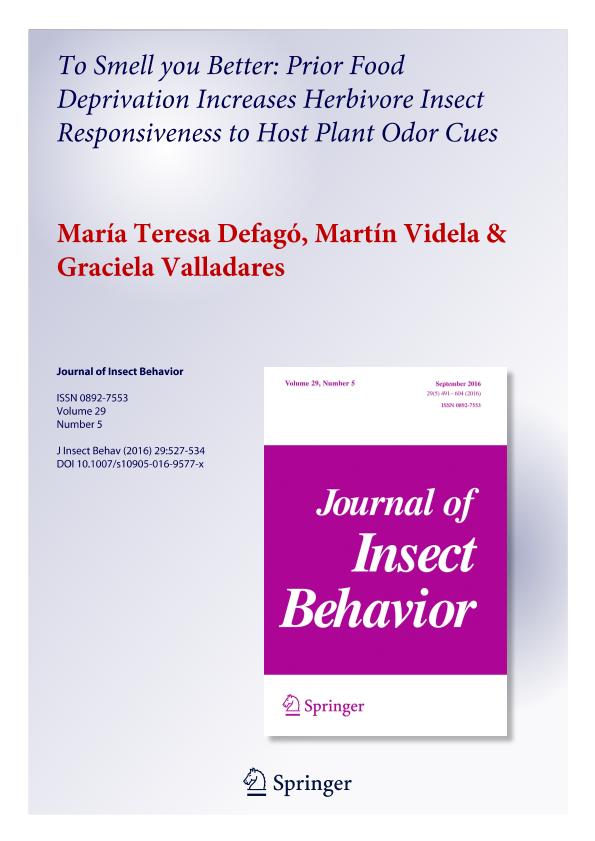Artículo
To smell you better: prior food deprivation increases herbivore insect responsiveness to host plant odor cues
Fecha de publicación:
08/2016
Editorial:
Springer
Revista:
Journal Of Insect Behaviour
ISSN:
0892-7553
e-ISSN:
1572-8889
Idioma:
Inglés
Tipo de recurso:
Artículo publicado
Clasificación temática:
Resumen
Hunger plays a crucial role in insect feeding behavior, however food deprivation is rarely considered when insect responses to plant host and related chemical stimuli are investigated. Here we assessed, by means of experiments with Y-tube olfactometer, the effect of food deprivation time on the response of a specialist (Xanthogaleruca luteola) and a generalist (Diabrotica speciosa) herbivore beetle species (Coleoptera: Chrysomelidae) to odor cues of their respective host plants. Increasing food deprivation periods enhanced responses to host plant odor in both species, with insects remaining for longer in the olfactometer arm carrying plant odor than in the control, moving less frequently between olfactometer arms, and being more efficient in moving towards the plant odor as their first choice. These trends were less significant in the generalist species, which also required a longer fasting threshold (48 h) in comparison with the specialist (8 h). Our results, showing that prior food deprivation time can influence insect herbivore responsiveness to plant stimuli and that those effects may vary between species, highlight the risk of neglecting this factor in studies involving insect responses to host or chemical stimuli.
Palabras clave:
Feeding Behavior
,
Food Deprivation
,
Herbivore
,
Odor Cues
,
Olfactometer
Archivos asociados
Licencia
Identificadores
Colecciones
Articulos(IMBIV)
Articulos de INST.MULTIDISCIPL.DE BIOLOGIA VEGETAL (P)
Articulos de INST.MULTIDISCIPL.DE BIOLOGIA VEGETAL (P)
Citación
Defagó, María Teresa; Videla, Martin; Valladares, Graciela Rosa; To smell you better: prior food deprivation increases herbivore insect responsiveness to host plant odor cues; Springer; Journal Of Insect Behaviour; 29; 5; 8-2016; 527-534
Compartir
Altmétricas




